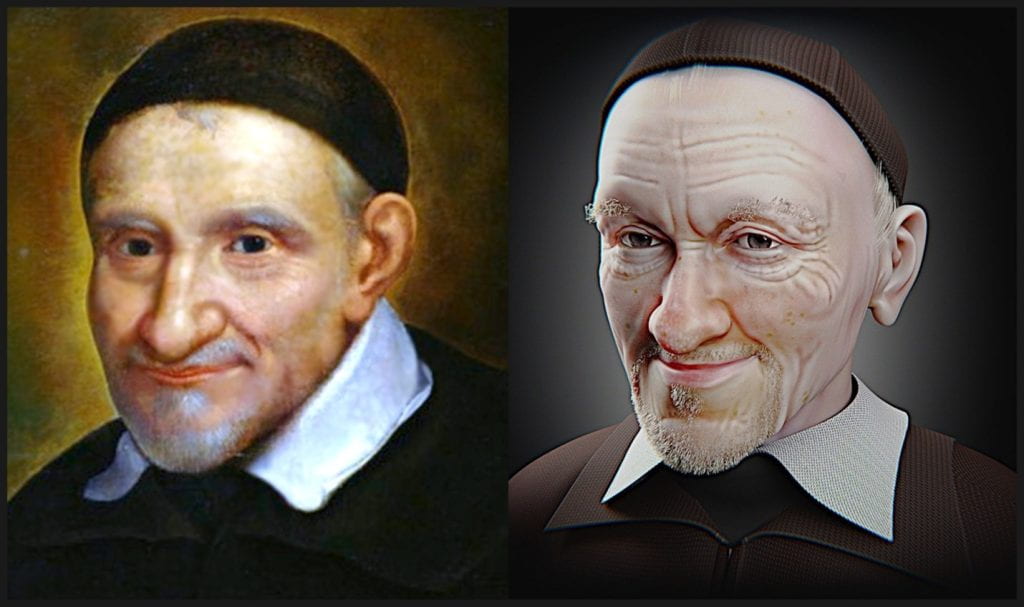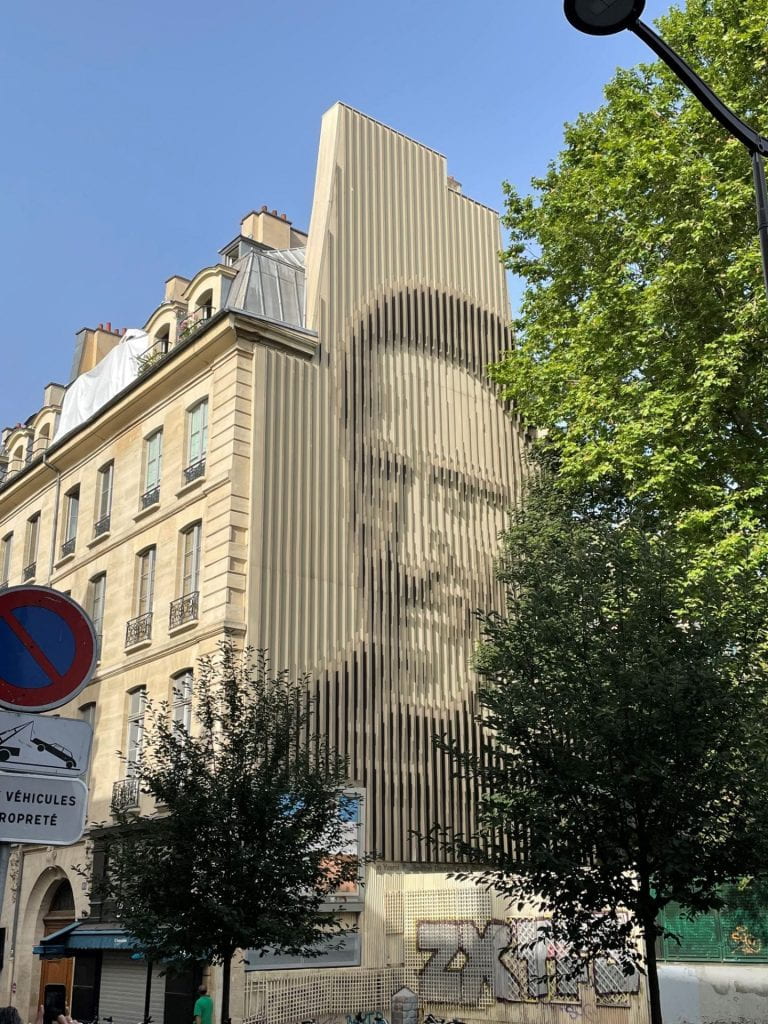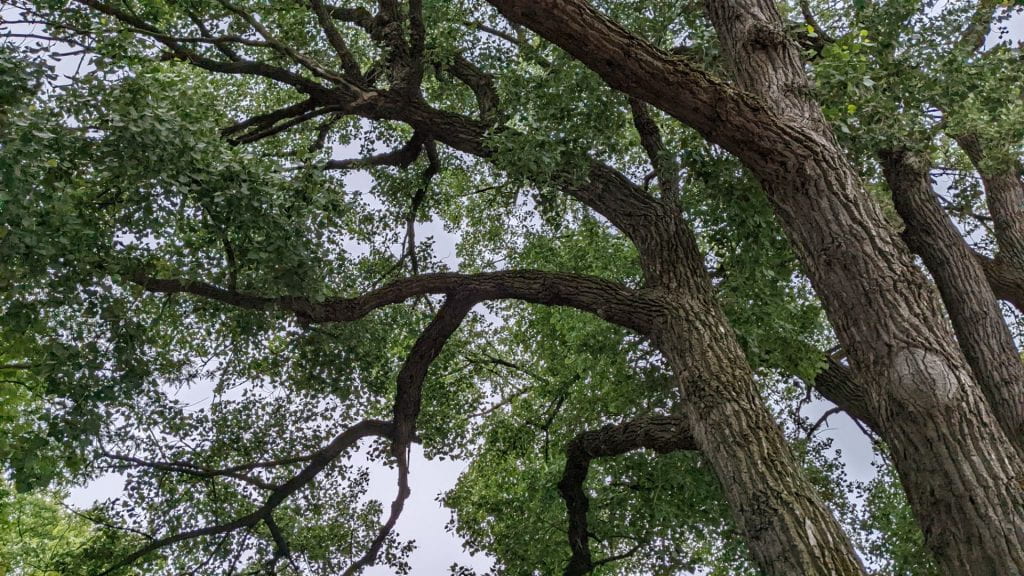Vincent was a trailblazer, a true change agent of his day. He was a man who saw hope and possibility despite the challenges of his time. He felt a keen dissatisfaction in the gap between the way the world should be and the way the world was. Throughout his 79 years, Vincent sought to close that divide, asking “what must be done” and acting on the answers he found. Four hundred years later, DePaul University continues to carry forward his legacy by educating the next generation of trailblazers.
During Vincentian Heritage Week the Division of Mission and Ministry will host the key events below.
Sunday Night Mass & BBQ
Sunday, September 25, 6pm | St. Vincent de Paul Parish
Join Catholic Campus Ministry and St. Vincent de Paul Parish for a (free) BBQ on the Parish Lawn (on Webster Ave.) to celebrate the Feast Day at 6pm after 5pm Mass.
Whether you go to Mass weekly, occasionally, or have never been to a Catholic Mass, you are welcome here! Come celebrate!
Feast Day Mass
Tuesday, September 27, 12:00 pm | Lincoln Park & Loop Campuses
For those wishing to attend Mass celebrating St. Vincent de Paul’s Feast Day, Masses will be held in the Loop in the Miraculous Medal Chapel (Lewis Center – First Floor), and in Lincoln Park in the St. Louise de Marillac Chapel (Student Center – First Floor).
Feast Day Lunch
Tuesday, September 27, 12:45 pm | Lincoln Park & Loop Campuses
Celebrate our namesake’s Feast Day with a celebratory lunch at 12:45 pm. Everyone is welcome!
-
In the Loop, join us in the DePaul Club. RSVP here for the Loop lunch.
-
For the lunch in Lincoln Park, no need to register, just come to Catholic Campus Ministry (Student Center – Suite 104).
Loop Mini Vinny Fest
Tuesday, September 27, 2:00-4:00pm | Loop DePaul Plaza
Join the Office of Student Involvement and Mission and Ministry for our first ever Loop Mini Vinny Fest! Celebrate our namesake’s Feast Day and DePaul University’s 125th anniversary with fun, games, photos, caricatures and more!
St. Vincent de Paul Heritage Week Luncheon
Wednesday, September 28 (12 – 1:30 pm) | Loop DePaul Center Concourse
Join the DePaul community for a special luncheon featuring an engaging conversation with Sister Helen Prejean, ardent advocate for restorative justice and activist against the death penalty. Dr. Robert Manuel, DePaul University’s new President, will present Sr. Helen with the St. Vincent de Paul Award in recognition of her continued life’s work. The award is DePaul’s highest honor, with past winners including Dorothy Day, Monsignor John Egan, and Muhammad Yunus.
The hybrid luncheon will be hosted on the Concourse Level of the DePaul Center, starting at noon. We hope you can join us! We will also be hosting the conversation via Zoom, for those who cannot join us in person.
St. Vincent de Paul Prayer Breakfast
Friday, September 30 (9:00 – 10:30 am) | Student Center 120 A & B
Come celebrate our shared Vincentian heritage with delicious food and great community at our annual St. Vincent de Paul Prayer Breakfast! This year, we will welcome new DePaul University President Dr. Robert L. Manuel, who will share his vision of the Vincentian spirit and its impact in these times of complexity and uncertainty.
It should be a great chance to meet the new President, and start DePaul’s 125th year in community, gathered together for the sake of a mission. All our welcome!
Vinny Fest
Friday, September 30 (2pm – 4pm) | Lincoln Park Quad & St. Vincent’s Circle
Join us for Vinny Fest 2022, a DePaul tradition to honor and celebrate St. Vincent de Paul’s legacy with fun, games, photos with Vincent, free food, and more! Vinny Fest features student organizations, offices, and departments as they host engaging activities to celebrate our mission in action as a DePaul community. Follow @mmatmdepaul to stay up to date.









